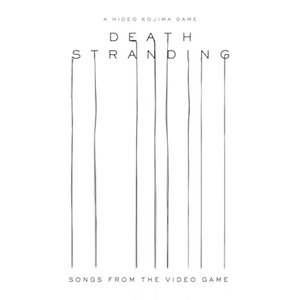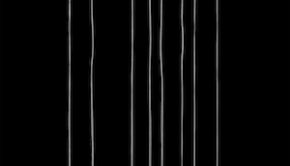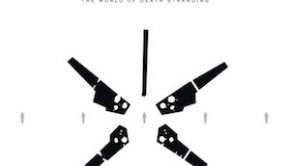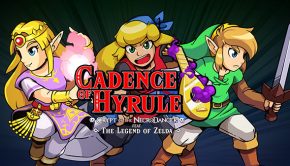Death Stranding (Songs from the Video Game)
 |
Album Title: Death Stranding (Songs from the Video Game) |
| Record Label: Masterworks |
|
| Catalog No.: G010004193231L |
|
| Release Date: January 31, 2020 |
|
| Purchase: Buy at iTunes |
Overview
Death Stranding (Songs from the Video Game) is the third major album released for Death Stranding, and is available now digitally, with future CD and vinyl releases planned. This album collects most of the vocal songs that appear in the game either organically or in its music player. Most of these songs were previously written for the Icelandic band Low Roar, and are collected from the band’s first four albums. The album also contains four tracks from other groups from trailers and the credits for the game. It does not include any of the songs already released on the Timefall album (save for “Death Stranding” by CHVRCHES), nor does it include “BB’s Theme” (which is only available as part of the Original Score), and it further missing Gen Hoshino’s “Pop Virus” and a handful of other Low Roar tracks. But there is still over 100 minutes of material here, largely consisting of low-key alternative rock and electronica that for players will be the collection of music that most represents their experience of the game.
Body
Low Roar’s post-rock and electronica style is made clear throughout the album, with soft vocals often in broad parallel harmonies, slow tempos, a mix of acoustic and light electronic sounds, expressive lyrics, the occasional extended outro, and simple repetitions of key phrases for choruses. The opener “Don’t Be So Serious” is easily one of their best, and it may surprise those who only heard the opening segment in the game how much the track grows over its 6 minutes, beginning quietly then becoming a low-key dance number. The melodies are strong, the production is detailed, and the chorus repetition of “Don’t be so serious” is effective as a repeated plea. The other tracks are considerably slower or more downcast, but a number still lean into the electronica side of things like “Bones”, a much shorter but still impactful track that features female vocalist Jófríõur Ákadóttir. The two sound beautiful in dialogue on this more reflective track, and it shows the range of Low Roar’s singer Ryan Karazija. There is also “Please Don’t Stop Chapter 1” with a low synth bass that drives the whole track, and the chillingly sparse “Nobody Else”, both effective and distinct in their atmospheres. There is also “Anything You Need” a more relaxed song that notably features a prominent synth pattern that is reminiscent of Ludvig Forssell’s score for the game. Many of these tracks in particular actually sound like they could have been composed for the game, because of how well they fit sonically and sometimes even lyrically.
A fair number of tracks are also more acoustic or alternative rock in their sound, often also allowing Karazija’s vocal to stand on its own without the harmonies and layers of the earlier-discussed tracks. The short “Poznan” is mostly piano and strings, but still manages to do a lot over its runtime with a blossoming sound and an interesting chord progression. The other tracks have a lot more guitar emphasis. Meditative tracks like the dreamy “Because We Have To” and “Patience” with their fingerpicked patterns are very effective in their simplicity, and are some of the more depressive tracks of the album. “Give Up” and “Not Around” use more breezy picking and strumming patterns with a mix of pads to brighten things up a bit, though the former is still very hazy and distant while the latter is quite warm. Karazija’s vocal performance is also notable on “Not Around“, if only because it is heard so much more clearly here than on most other tracks. “St. Eriksplan” uses a simple strumming pattern too, but is much more wistful and takes a few dark turns. “Easy Way Out” is one of the few to feature electric guitar prominently, with the full band coming in later. I’m not so enamoured with its melody, but it has a rather distinctive feel on the album, being a bit grittier with the electric guitar and whirring noises throughout. All this is to say that there is a decent amount of emotional and sonic ground covered here, even though the ingredients are mostly the same.
A couple of tracks are bit more drastically different. One of my favourites, “Once in a Long, Long While” uses a light base of very glitchy synths reminiscent of chiptune sounds, and sports a very relaxed, vaguely psychedelic sound. “Waiting (10 Years)” is another highlight that is in a similar vein, alternating between bright bubbly sections and airy sections that seem held in suspension. Its simple melody outro is rather lovely, as are the textures throughout the track. “I’m Leaving” is another bright-sounding track, and while I appreciate the variation in sound I find it to be one of the weaker tracks, having little to make it stand out amongst the rest. On the grimmer side of things is “Tonight, Tonight, Tonight” which opens with long drawn strings before starting into harsher electronic rock. By the final minute or so of the piece (which totals nearly eight minutes) the track rather organically devolves into noise, and it is impressive that I never feel it overstays its welcome. Then there is the album closer “I’ll Keep Coming”, another standout which has a much edgier sound than most of the album, having a lot of distortion and heavier percussion, which is balanced by the underlying beauty in its warm vocal harmonies and chords in the verses. The waves of low bass synth and digital noises fit the game’s aesthetic perfectly, and the impactful chorus is epic and memorable.
There are just a couple of tracks on the album that are not by Low Roar. “Asylums for the Feeling” by Silent Poets with Leila Adu is a big track at 7 minutes, with some similarities to Low Roar in tone and structure, beginning with a soft guitar and strings, later adding some percussion, all accompanying Adu’s soft vocal which uses short repeated phrases like Low Roar’s. I find the track a bit too long for its substance, but otherwise it fits in. Silent Poets is later joined by Okay Kaya for “Almost Nothing”, again similar in strengths and weaknesses; here especially the repeated phrases should have been varied, and the instrumental given more development so as to avoid monotony. But the track is mostly saved by Kaya’s cooing vocal, which is beautiful and provides a lovely texture throughout. Then there is “Death Stranding” by CHVRCHES, the hopeful synthpop credits track that also appeared on the Timefall album. Here it is rather out of place in terms of production and vocals, but the track is still quite enjoyable and is still very relevant to the game due to its lyrics. Then there is “Path” by Apocalyptica, the only instrumental track on this album. Used in a trailer, the song is a metal track with a cello leads. As such, it too sticks out quite a bit (especially being sandwiched between two very calm Low Roar tracks), but it’s not a bad track in itself; there are a couple of neat complex rhythms, a nice dialogue between the cello and guitars, and vigorous intensity throughout.
Summary
Death Stranding (Songs from the Video Game) is a great collection of moody tracks that were perfect for the game they accompanied, and also very enjoyable to listen to on their own. For most it will likely be the best of the three main albums released from the game. Low Roar’s tracks range from are mostly great with some standouts, and there is enough variation throughout the tracks so as to not get tiring even with repeated listens, save for a handful. The tracks not by Low Roar are good as well, although they do create some issues with cohesion. As for those tracks that didn’t make the cut, the Low Roar omissions are mostly more of the same, though I would have liked to have the charming “Gosia” included. Gen Hoshino’s “Pop Virus” is an infectious J-pop track, but it would have completely out of place on the album, so its omission is understandable. As it is, the album contains nearly two hours of great music at a very low price, and though it might not be to everyone’s tastes, fans of the game should definitely check it out.
Do you agree with the review and score? Let us know in the comments below!
4
Posted on March 13, 2020 by Tien Hoang. Last modified on March 13, 2020.













